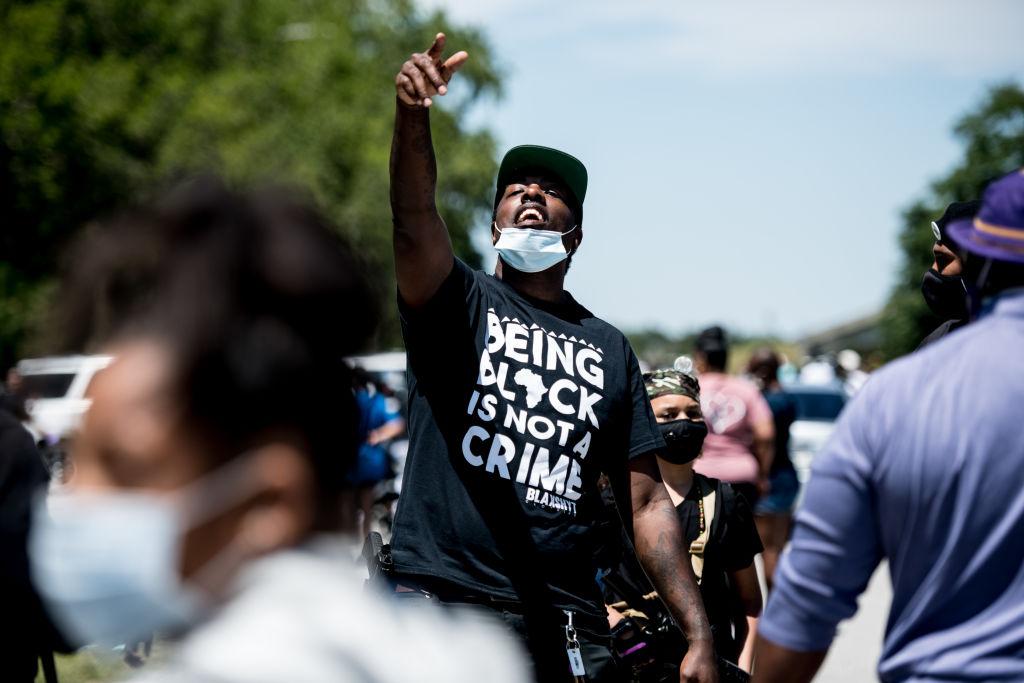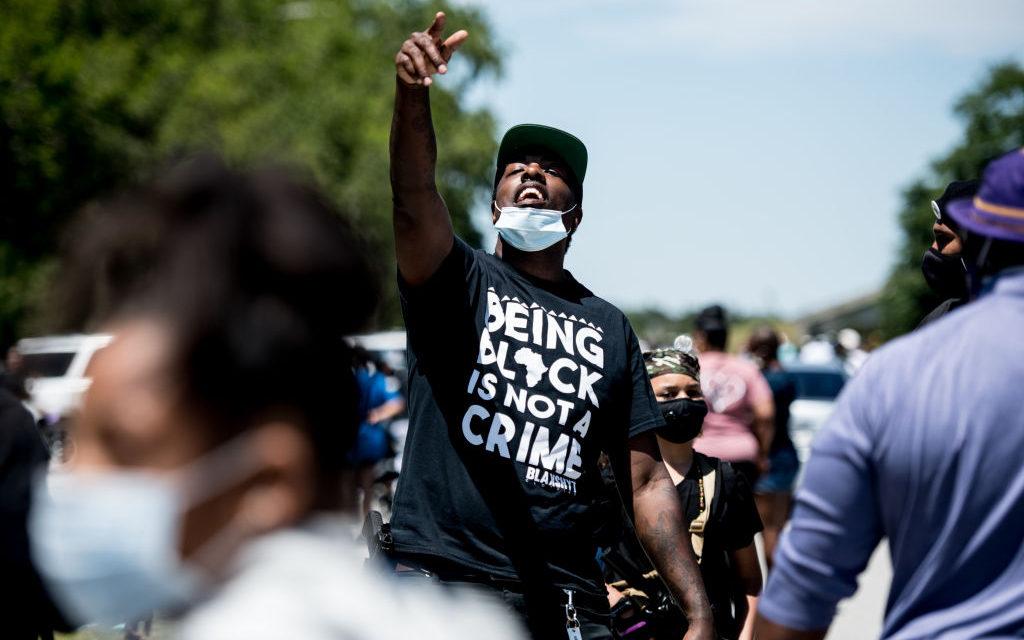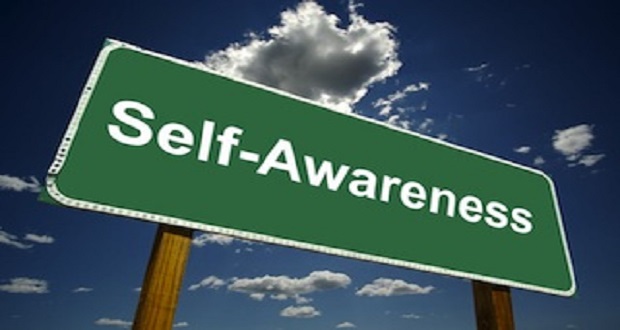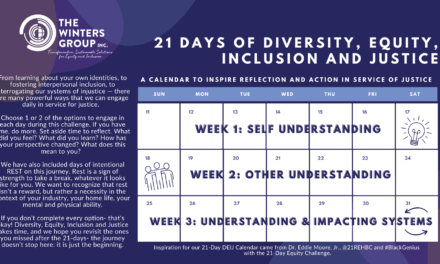
We are not effectively talking about race, and it is literally killing Black people. We posted recently, especially around the coronavirus, about the disparities in healthcare that are taking Black lives at higher rates. We know that bias and inequity in healthcare have also caused higher complications during childbirth for Black women. And then we have the racism causing the senseless killings of unarmed Black people doing everyday things, the latest high-profile cases being Ahmaud Arbery and Breonna Taylor. The more we continue to not talk about race and racism in an effective and actionable way, the more Black people will continue to die.
We are not effectively talking about race, and it is literally killing Black people. Share on XOne of my college friends recently posted a passionate video on his Facebook page asking, “Why?” He was lamenting the Ahmaud Arbery situation. A graduate of Morehouse College and Meharry Medical College, currently working as an Assistant Professor of Internal Medicine, he still fears for his life and carries the weight of the suspicions of white people on his shoulders daily.
In his video he shared how when he is consulting with his Black patients about their health, diet, and exercise, one of the first things he asks is about the safety of their environment. He said, “The first thing I ask them is, ‘is your neighborhood safe to run in? Is your neighborhood safe to walk in?’ WHY DO I HAVE TO ASK MY BLACK PATIENTS THAT?! Why do I have to ask them if it’s safe? White doctors don’t have to ask their White patients that. White doctors probably don’t think to ask their Black patients that.” In the video he also told a story about when he was driving with a white colleague and a police officer got behind them and he “got visibly tense”. This is a normal response for many Black people, not because we’re guilty of something, but because we know that we are perceived as guilty based on the color of our skin. He went on to say how his White colleague also started to get scared because the cop tailed them for some time, and for a brief moment the White colleague felt what Black people feel on a daily basis. He ended saying, “If the coronavirus doesn’t kill us, white people will.”
'The first thing I ask them is, ‘is your neighborhood safe to run in?'' Why do I have to ask them if it’s safe? White doctors don’t have to ask their White patients that. White doctors probably don’t think to ask their Black… Share on XThe frustration, agitation, anger, and fatigue could be felt through his video.
On a recent episode of AM Joy, Jonathan Capehart of the Washington Post said, “The burden of being Black in America, and in particular being a Black man, is bearing the weight of other people’s suspicions. …Black people doing everyday things are being harassed for it at a minimum and killed for it at a maximum.” Even I, as a lighter skinned Black woman, tense up and grip my steering wheel harder when a cop appears in my rearview mirror. Even though race is a social construct, it still impacts our systems and makes a difference in how we experience the world.
Since the details of the Ahmaud Arbery shooting have emerged, The Winters Group has received several inquiries from clients wanting us to facilitate dialogues. We have facilitated these types dialogues and workshops in the past, especially when a similar situation makes national news. The impetus for Mary-Frances Winters writing her best seller “We Can’t Talk About That at Work: How to Talk About Race, Religion, Politics and Other Polarizing Topics” was in part due to the continued killings of unarmed Black people at the hands of cops or citizen “cops”, and recognizing the need to ensure people and organizations are equipped to have these real conversations in the workplace. We know that people are bringing these emotions and trauma to the workplace, and there is not a switch to turn it off and on. However, there is still a fear of having real, deep conversations around race and systemic racism within corporate walls.
In the past, clients have accused us of talking about race too much in our training, when there wasn’t even one mention of race – the only race element was that the facilitator was Black. We have been told we cannot show certain videos because they discuss racial topics and that we needed to find something more palatable, and the organization is not ready. When will organization leaders be ready? I assure you that the Black people in your organizations are beyond ready to start dialogues that lead to systemic changes. They need their allies to be spurred to action and for those that lack competence to become curious. What is not needed is more silence. If we simply continue to sweep the conversation of race under the rug, or only want to talk about it when someone is killed, then how will we ever become better?
If we simply continue to sweep the conversation of race under the rug, or only want to talk about it when someone is killed, then how will we ever become better? Share on XI would like to leave you with the following tips:
Reflect: Take time to reflect on your own identities, values, assumptions, and power. Interrogate the ways in which your social and positional power may contribute to lack of awareness or insensitivity. Challenge your assumptions about people and groups from whom you are different.
Act as an ally: Being an ally is how one leverages their privilege to amplify and affirm the humanity in others. It is actively leveraging our power to advance a culture of inclusion and equity through intentional, positive and conscious efforts that benefit people as a whole. Think about opportunities where you should have spoken out. When an opportunity arises to speak out again, do it.
Create psychologically safe spaces: Employees who are psychologically safe feel free to speak up about problems and tough issues. One’s perception of psychological safety is based on a belief about the group norm. Organizations need to create an environment where employees feel, and are, psychologically safe.
Empathize: Race related conversations will continue to be difficult and uncomfortable if we do not seek empathy. Empathy means that you feel what a person is feeling. It is not necessarily having the same experience as someone, but is the ability to connect to the emotional experiences of another through your own emotional experiences. It is also not taking responsibility for someone else’s problem, but rather validating that person’s experiences and challenges. Listen to the voices of people of color to better understand the perspective of their lived experiences.
Here are a few resources from The Winters Group bookshelf to help you and your organizations start or continue to have these important dialogues.
- “We Can’t Talk About That at Work: How to Talk About Race, Religion, Politics and Other Polarizing Topics” by Mary-Frances Winters (Buy here)
- “Inclusive Conversations: Fostering Equity, Empathy, and Belonging Across Differences” by Mary-Frances Winters (coming August 2020, available for preorder now)
- “Black Fatigue: How Racism Erodes the Mind, Body, and Spirit” by Mary-Frances Winters (coming in February 2021)
Whitepapers:



















